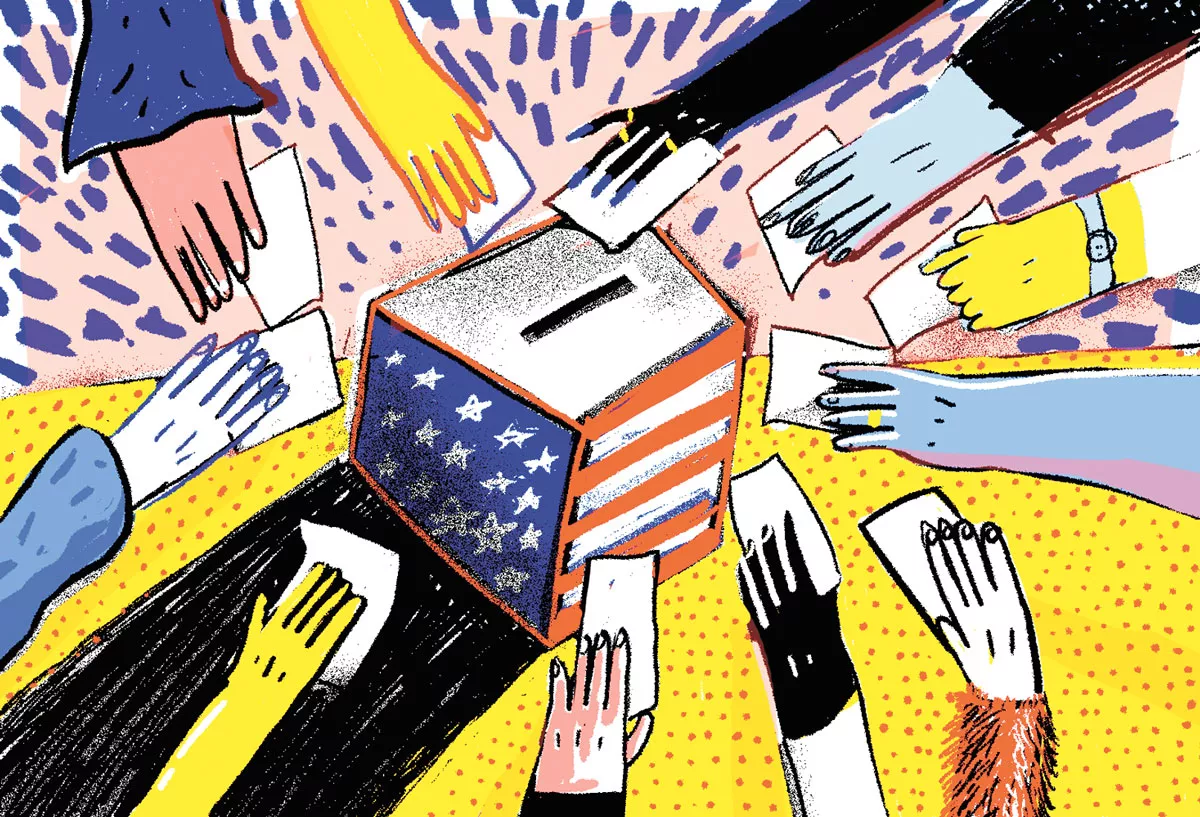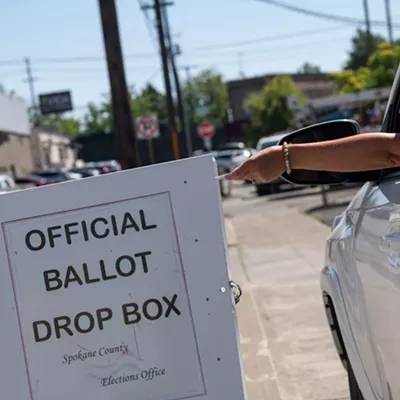America is an unusual nation — occasionally an exceptional one, but always unusual — in that it is defined not by a common ethnicity, history or language, but by an idea.
America's original claim to independence is based on a singular moral truth: The right of all people to self-govern. It's an argument boldly stated in the Declaration of Independence that tragically was poorly realized in the first draft of our Constitution.
But that simple moral truth has propelled those who fight to fulfill America's founding pledge. Generations of suffragettes and freedom fighters have struggled for over two centuries to make the reality of America match its broken promise.
As suggested by President Barack Obama in his eulogy of congressman and legendary voting rights advocate John Lewis, these Americans ought to be remembered as the founders of "a fuller, fairer, better America." Indeed, America's founding will not be complete until universal suffrage is achieved.
That voting is a basic right — one that should not be denied based on gender or race — is an understanding Americans now overwhelmingly hold in principle, but frequently our politicians fail to implement in practice.
Few politicians, of course, would dare to directly acknowledge that they want to block people from voting. They devise new and clever ways to disenfranchise folks: creating hourslong lines at polling places, placing barriers to voter registration, removing folks from the voting rolls, and permanently blocking felons from voting, even long after they've served their sentences and made restitution.
Even the debate over the immigration and citizenship statuses of Dreamers is primarily really about whether they should be allowed to vote. Few suggest they should be sent to countries they may not even remember, but many more will suggest they should live permanently in the United States without a voice in our democratic processes.
Politicians arguing for these policies have lots of explanations, but their true motivation is transparent: They don't want people to vote who might vote against them. Sure, over the decades and centuries, they've advanced racism and sexism to limit who votes — but those are merely evil tactics in the pursuit of a larger goal.
We spend a lot of time today debating whether particular public figures — including a certain president — are prejudiced. We ponder: "Do they hold acute animosity against particular racial groups?" I think this misses the more important point: That many are fighting for racist policies.
Nowhere is this more apparent than in the battle over voting rights. The arguments to create blockades to voting are almost always flimsy and occasionally politicians have revealed their intent by saying the "quiet part" out loud, acknowledging that they want to pass a law, conduct the census in a certain way, or redistrict specifically to increase their political power.
This was what happened in a recent Supreme Court case, where it was discovered that a Republican operative had devised a question specifically to undercount immigrants and to strengthen Republicans in redistricting. The court, appropriately, ordered the question removed.
Sadly, the Supreme Court has throughout our history failed as often as all our nation's other institutions to consistently protect the right to vote. Slavery may be America's original sin, but the instrument of its preservation and its continued impacts have long been linked to ensuring especially the disenfranchisement of Black Americans.
It was done by ensuring neither enslaved nor freed Black Americans could vote, by implementing poll taxes and so-called "literacy" test, by armed intimidation and political hangings. And make no mistake, the voter intimidation and suppression tactics used today are direct descendants of those same oppressions with the same intentions behind them.
The impact is elected representation that is hardly representative. It is a subversion of democracy that undermines the very legitimacy of our democratic republic. It leads to racist laws and policies out of touch with a true majority of America's people.
I might be willing to assume, beyond reason, good intent behind the flawed policies that prolong racist impacts if the politicians advancing them didn't so fervently advocate simultaneously to suppress the vote of those objecting. But really, their intention doesn't matter. The impact does.
This is why this November I have become a one-issue voter. I will vote for the America that's long been imagined but has yet to be achieved. I will vote for voting. I will vote for democracy.
There is nothing more important or more fundamentally American. It is at the very core of our collective potential for greatness. Democracy is a human right and it is time for us to finally not just honor it, but implement it. ♦
John T. Reuter, a former Sandpoint City Councilman, has been active in protecting the environment, expanding LGBT rights and Idaho's Republican Party politics.




















